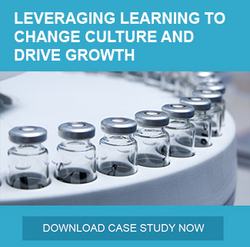by Dawn Francis, Ed.D.
One of my last blog entries prompted a reader to ask how my research on transformative learning can apply to organizational transformation. She specifically wondered how it can apply to organizational transformation that occurs through the merger and acquisition of companies. What a great question! When two organizations become one through a merger or acquisition, this creates an intense change in culture. The way you used to work…well, it’s different now. The people you used to work with…well, they’re different now. The assumptions governing your performance on the job…well, you’ll need to change them now. It’s hard to fathom a more disorienting dilemma. Suddenly, you have to unlearn old behaviors, and relearn new behaviors. That’s a recipe for transformative learning, to be sure.
How do you survive cultural change and transform your perspective on the change in the process? Here are a few key tips:
As these tips illustrate, your survival through personal and organizational transformation depends on your willingness to embrace new perspectives, your desire to gain new skills and knowledge, and your ability exhibit new behaviors.
One of my last blog entries prompted a reader to ask how my research on transformative learning can apply to organizational transformation. She specifically wondered how it can apply to organizational transformation that occurs through the merger and acquisition of companies. What a great question! When two organizations become one through a merger or acquisition, this creates an intense change in culture. The way you used to work…well, it’s different now. The people you used to work with…well, they’re different now. The assumptions governing your performance on the job…well, you’ll need to change them now. It’s hard to fathom a more disorienting dilemma. Suddenly, you have to unlearn old behaviors, and relearn new behaviors. That’s a recipe for transformative learning, to be sure.
How do you survive cultural change and transform your perspective on the change in the process? Here are a few key tips:
- First Things First: Reflect – Changing the way you perform on the job is never easy. Gain strength and clarity by examining your own beliefs and assumptions about the organizational transformation. Ask yourself why you might be resisting change. Consider the opportunities inherent in the change—both for yourself and your team.
- Dialogue with Others: Listen to others’ reasons for resistance. Share your own concerns. Collectively consider the possibilities for personal and professional growth that lie ahead throughout the change process. Create a shared vision of the future that’s in alignment with the strategy being set by leaders within the organization.
- Gain New Skills and Knowledge: New ways of work often require different skills and knowledge. Take account of the revised business goals for your organization. Work with your manager to determine how your performance needs to align with these goals. Proactively identify gaps in your skills and knowledge that will likely inhibit your ability to perform according to these new expectations. Secure the skills and knowledge necessary to change your behavior. In turn, you’ll feel more invested in the change and more empowered to change.
- Build Competence and Take Action: As you apply your new behaviors on the job, request the support you need to perform to expectations. This support might be in the form of performance support tools, coaching/mentoring, and process improvements. Ask for feedback and engage in continuous learning.
As these tips illustrate, your survival through personal and organizational transformation depends on your willingness to embrace new perspectives, your desire to gain new skills and knowledge, and your ability exhibit new behaviors.


